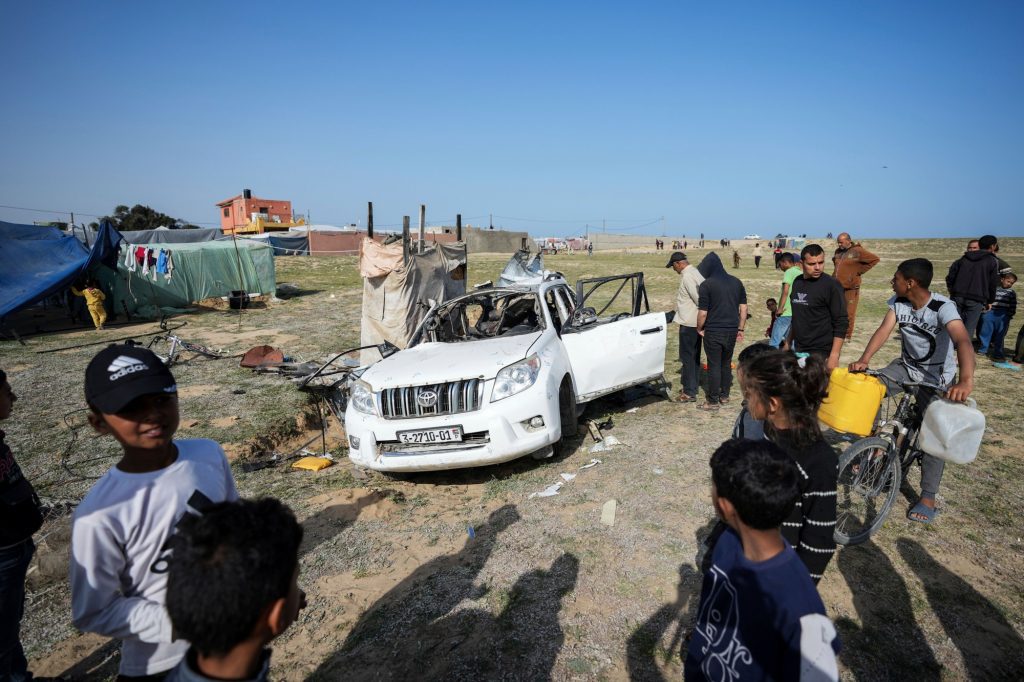By Wafaa Shurafa and Samy Magdy, Associated Press
DEIR AL-BALAH, Gaza Strip (AP) — A recent airstrike by Israel killed seven aid workers from World Central Kitchen. As a result, the charity has paused the delivery of important food aid to Gaza. This is happening as Israel's offensive has driven hundreds of thousands of Palestinians to the brink of starvation.
Ships carrying about 240 tons of aid that had arrived just a day earlier turned back from Gaza, as reported by Cyprus, which has been instrumental in trying to establish a sea route for delivering food to the territory. Israel has only allowed a small amount of aid into the heavily damaged northern Gaza, where experts warn that famine is imminent.
Israeli Prime Minister Benjamin Netanyahu admitted that the country's forces had carried out the unintentional strike on innocent people. He stated that officials are investigating the strike and will work to prevent similar incidents in the future.
Video footage showed the bodies of the aid workers, some of whom were wearing protective gear with the charity's logo, at a hospital in the central Gaza town of Deir al-Balah. Those killed include three British citizens, an Australian, a Polish national, an American-Canadian dual citizen, and a Palestinian, according to hospital records.
Another video after the strike displayed a vehicle with the charity's logo on its roof to aid in identification from the air. The projectile had created a large hole in the roof.
With a mounting humanitarian crisis in northern Gaza, several countries sought to open a sea route in hopes of allowing more aid to enter. The United States and other countries also performed airdrops of aid, but humanitarian workers argue that these efforts alone are not enough.
World Central Kitchen, a charity founded by celebrity chef José Andrés, played a crucial role in establishing the new route. Israel has banned UNRWA, the main U.N. agency in Gaza, from making deliveries to the north, and other aid groups are facing extreme difficulties in sending truck convoys north due to the military's failure to grant permission or ensure safe passage.
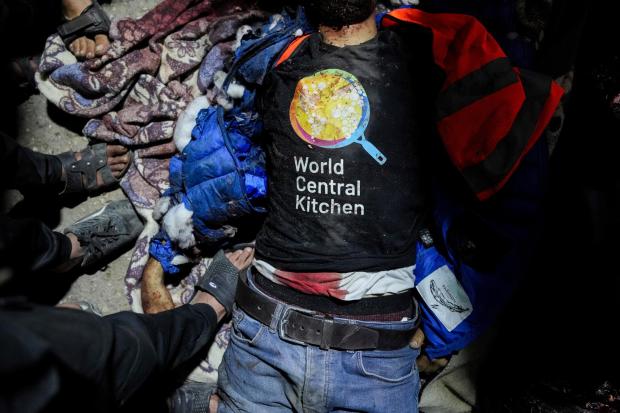
Andrés — whose charity operates in several countries affected by wars or natural disasters, including Israel after the Oct. 7 attack that triggered the war — stated that he was saddened by the deaths.
“The Israeli government needs to stop this indiscriminate killing. It needs to stop restricting humanitarian aid, stop killing civilians and aid workers, and stop using food as a weapon,” he wrote on X, formerly Twitter.
The charity mentioned that the team was traveling in a three-car convoy with two armored vehicles, and their movements had been coordinated with the Israeli army.
Rear Adm. Daniel Hagari, the top military spokesman, stated that officials have been “reviewing the incident at the highest levels” and that an independent investigation will be launched.
Anera, a aid group based in Washington which has been working in the Palestinian territories for many years, stated that after the strike it was pausing its own operations in Gaza, where it had been assisting to provide approximately 150,000 meals every day, which it considered an unprecedented action.
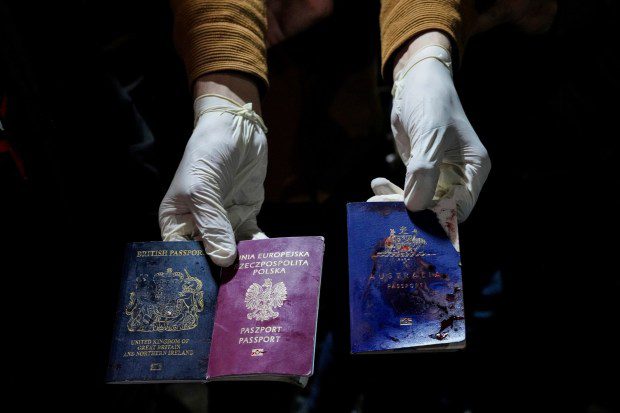
It said in a statement, “The increasing dangers associated with providing aid lead us to stop our operations until our staff feel confident that they can carry out their work without excessive risk,” which it regarded as a necessary measure.
Jamie McGoldrick, the United Nations humanitarian coordinator for the Palestinian territories, mentioned that the strike was “not an isolated incident,” and highlighted that about 200 humanitarian workers have been killed since the war started in October.
He said, “This is almost three times the death toll reported in any single conflict in a year.
The conflict began when fighters led by Hamas, which is classified as a terrorist organization by the United States, Canada and the European Union, entered southern Israel in a surprise attack on October 7, causing the death of about 1,200 people and capturing about 250 hostages. In response, Israel carried out one of the deadliest and most destructive military campaigns in recent history.
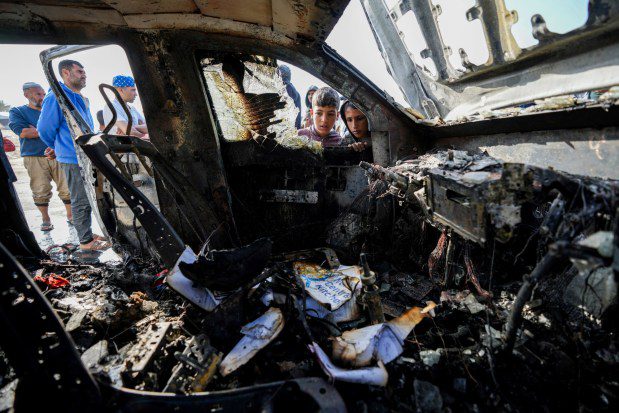
Tensions have increased across the Middle East, and an apparent Israeli strike on Iran’s consulate in the Syrian capital, Damascus, on Monday has further escalated them. Iran and its allies have pledged to retaliate for the strike, which resulted in the deaths of two Iranian generals.
On Monday, three aid ships from the Mediterranean island nation of Cyprus arrived with approximately 400 tons of food and supplies organized by World Central Kitchen and the United Arab Emirates following a trial run last month.
Cypriot Foreign Ministry spokesman Theodoros Gotsis stated on Tuesday that about 100 tons of aid had been unloaded before the charity suspended operations, and that the remaining 240 tons of aid would be taken back to Cyprus.
The United States, which has provided important military assistance for Israel’s offensive, has praised the sea route and plans to construct its own floating dock, with construction expected to take several weeks.
The U.S., Britain, Poland and Australia — whose citizens were among those killed, according to the hospital — requested an investigation or an explanation from Israel.
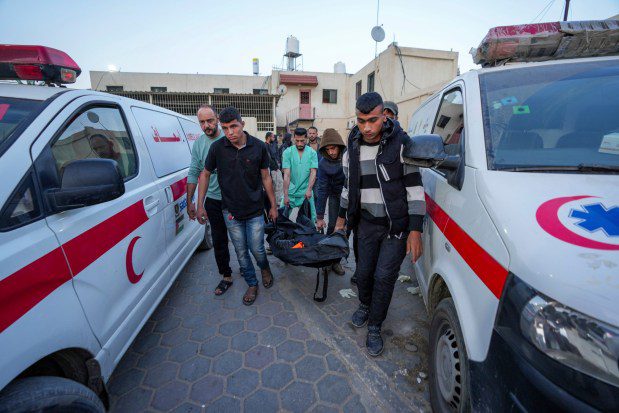
The U.S. National Security Council spokesperson Adrienne Watson expressed deep sadness and concern about the strike, and British Foreign Secretary David Cameron found it to be very upsetting.
He expressed the importance of protecting humanitarian workers and ensuring they can do their job. He also mentioned that his country is working to confirm reports of the deaths of U.K. nationals.
Australian Prime Minister Anthony Albanese confirmed the death of Zomi Frankcom, 44, from Melbourne. Damian Soból was also one of the victims, according to a post on Facebook by Wojciech Bakun, the mayor of Przemysl, a city in Poland where the aid worker was from.
According to Gaza’s Health Ministry, over 32,900 Palestinians, with about two-thirds being women and children, have died in the war. The ministry does not differentiate between civilians and fighters in its count. Israel attributes the high number of civilian casualties to Palestinian fighters operating in densely populated areas, but the military rarely comments on specific strikes.
In Rafah, two apparent Israeli strikes late Monday killed at least 16 Palestinians, including five children. Despite the presence of about 1.4 million Palestinians who have sought refuge from the fighting, Israel has pledged to expand its ground operation in the area.
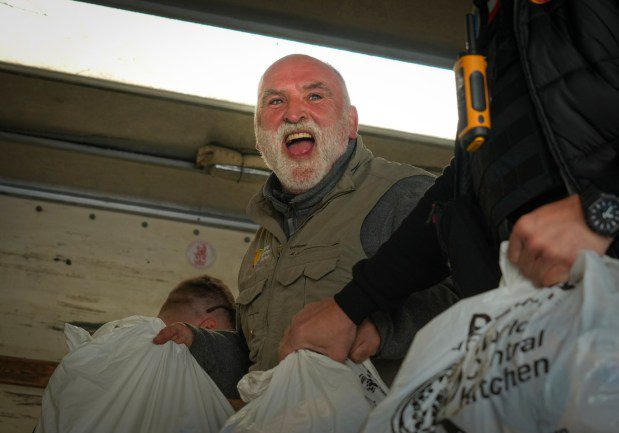
Records show that one of the strikes hit a family home, resulting in the deaths of 10 people, including five children. Another strike hit a gathering near a mosque, killing at least six people, including three children.
Humanitarian groups have frequently urged for a temporary halt to the fighting to be able to reach people in need. Despite efforts by the United States, Qatar, and Egypt to broker a pause in the fighting and secure the release of hostages, the indirect negotiations between Israel and Hamas remain stalled.
Hamas is believed to be holding approximately 100 hostages and the remains of 30 others, after releasing most of the hostages during a ceasefire in November in exchange for the release of Palestinians imprisoned by Israel.
Magdy reported from Cairo. Associated Press writer Monika Scislowska in Warsaw, Poland, Rod McGuirk in Melbourne, Australia, and Menelaos Hadjicostis in Nicosia, Cyprus, contributed.





